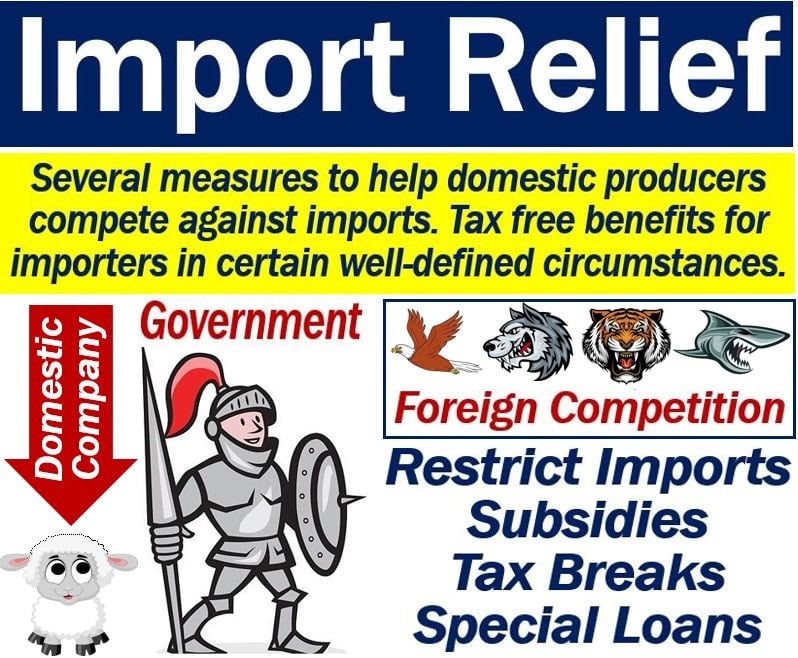Import relief consists of a combination of measures the government takes to protect domestic producers. The government targets a specific import and tries to help producers at home. The aim is to get domestic companies to compete more effectively in the international marketplace.
In this context, the term ‘marketplace’ means the same as ‘market’ in the abstract sense.
Imports are goods and services that come in from abroad. A Japanese-made car, for example, that is for sale in the United States is an import. Imports are the opposite of exports, i.e., goods that domestic companies produce and sell abroad.
Import relief – a combination of measures
As part of its import relief strategy, the government may restrict or suspend a particular import temporarily.
The government may also introduce relief measures such as special low-interest loans for domestic producers. It may also offer subsidies, tax benefits, and worker educational assistance.
US Legal has the following definition of the term:
“Import relief refers to governmental measures imposed to temporally restrict imports of a product or commodity to protect domestic producers from competition.”
“It includes the measures adopted to strengthen domestic producers.”

Import relief – re-exporting
Some governments grant import relief for imports that are then re-exported. The maquiladoras in Mexico for example, export the goods they produce.
Raw materials and other goods that they import usually come in tax-free, i.e., there are no import tariffs.
A maquiladora is a factory in Mexico that belongs to a foreign company and exports its products. In most cases, the products go to the owner’s country of origin.
Import relief – duty relief
Sometimes import relief means ‘duty relief.’ Duty relief means reducing or lifting taxes or tariffs on imports. We call taxes on goods that come in from abroad import duty.
The European Union, for example, defines certain circumstances where there are no import duties.
There is import relief when EU citizens, for instance, bring their personal belongings back home from a non-EU country.
Regarding such circumstances, the European Commission writes:
“In such circumstances, arrangements were made, both internationally and at the level of the Community, to allow goods to enjoy relief from the application of import duties.”
